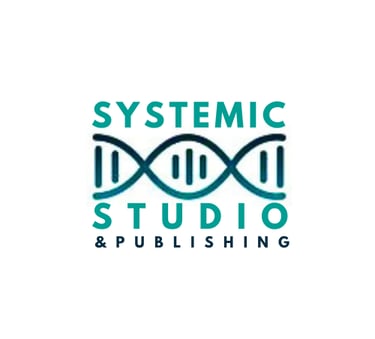Systems, Structure and Self-Expression
RELATIONSHIPS: Boundaries
Setting healthy boundaries is an essential—but often overlooked—part of building a balanced and fulfilling life.
RELATIONSHIPSFAMILY SYSTEMSSYSTEMIC CONSTELLATIONS
8/16/20253 min read
Whether it’s at work, in friendships, or within our families, boundaries help define our limits and communicate our needs to others. They protect our well-being, foster respect, and create a sense of safety in our relationships. Yet, many of us struggle with setting or maintaining boundaries, sometimes out of guilt or fear of conflict. In this post, we’ll explore boundaries from the lens of Systemic Constellations.
“The most fundamental aggression to ourselves, the most fundamental harm we can do to ourselves, is to remain ignorant by not having the courage and the respect to look at ourselves honestly and gently.”
― Pema Chödrön
From a systemic perspective, unresolved emotional wounds from our past—sometimes inherited across generations—can quietly disrupt our well-being and our relationships, no matter if those bonds are with the living or memories of those who have passed. These lingering traumas settle in the body, manifesting as everything from turbulent connections with loved ones, to persistent bouts of illness, financial struggles, or a sense of feeling spiritually unmoored. When our boundaries are porous or rigid, our unconscious mind will often communicate through the body’s symptoms and our struggles with others.
“We know what we are, but not what we may be.”
― William Shakespeare (often quoted by Carl Jung to highlight the power of the unconscious)
Amid the rush of daily life, it’s easy to dismiss the body’s quiet signals—tension, illness, exhaustion—as background noise or medical facts, rather than vital messages from our subconscious. Our culture prizes rational thinking, often to the exclusion of deeper wisdom. Yet, with guidance and practice, anyone can learn to discern these subtle messages; it’s an act of self-love and a crucial rite of growing up. Befriend these signals rather than resist them. Internal conflict breeds dis-ease, while acceptance opens space for healing.
“You yourself, as much as anybody in the entire universe, deserve your love and affection.”
― Sharon Salzberg
To foster a healthy boundary, one must prioritize self-care, sometimes for the very first time. This is not selfishness, but self-respect. A strong boundary helps prevent becoming entangled in the emotional burdens and energies of others, whether they are family, institutions, or the weight of ancestral stories. It is common to unconsciously carry responsibility for trauma or unfinished business not just for oneself, but for parents, ancestors, and even collective histories—a habit born from love and loyalty.
“The curious paradox is that when I accept myself just as I am, then I can change.”
― Carl Rogers
Connection to one’s authentic self is the foundation of healthy boundaries. By attuning to the sensations and feelings within, you gain the ability to know when to accept, when to refuse, and when to renegotiate roles in your life. If you feel tightness, agitation, or discomfort when considering a request or a person, honor those signals—they are the body’s way of protecting you. Tuning in and responding is the first step in building a relationship with yourself based on trust.
“Daring to set boundaries is about having the courage to love ourselves, even when we risk disappointing others.”
― Brené Brown
Visualizing your boundary can be powerful: imagine your heart as a tropical island, softly lapped by waves. You decide who is welcome at the shoreline and who must remain at a distance. Too rigid a boundary—high walls and isolation—signals wounds that need tending. Too loose a boundary—letting everyone in—means it’s time to prioritize your own well-being. Most of our boundary patterns have roots in our early relationship with our mother or primary caregiver, shaped by her (and her lineage’s) emotional state, not as a matter of blame, but as an invitation to compassion and insight.
“Between stimulus and response there is a space. In that space is our power to choose our response. In our response lies our growth and our freedom.”
― Viktor E. Frankl
If childhood brought emotional distance, the resulting sense of abandonment can echo in repeated self-abandonment, a desperate search for validation, or fear of true intimacy. If, on the other hand, you were suffocated by enmeshment, you may now struggle to assert separateness. Recognizing these dynamics helps break their hold.
“Practice is the hardest part of learning, and training is the essence of transformation.”
― Ann Voskamp
Establishing healthy boundaries requires daily attention—like practicing a musical instrument. Through trial and compassionate self-inquiry, your boundaries can become flexible enough to nurture connection and firm enough to keep you safe. After all, the human journey is one of learning separation and wholeness, of weaving together individuality with belonging.
“You are the only person who can set boundaries for your life. If you do not, someone else will.”
― Anonymous
Ultimately, the healthiest relationships—whether with others or with yourself—rest on boundaries rooted in self-love. When your body and mind learn you will listen and respond to their messages, healing and resilience follow. Start by befriending yourself and making your inner island a place of safety and care.
Systemic Studio & Publishing © 2026 All rights reserved.

